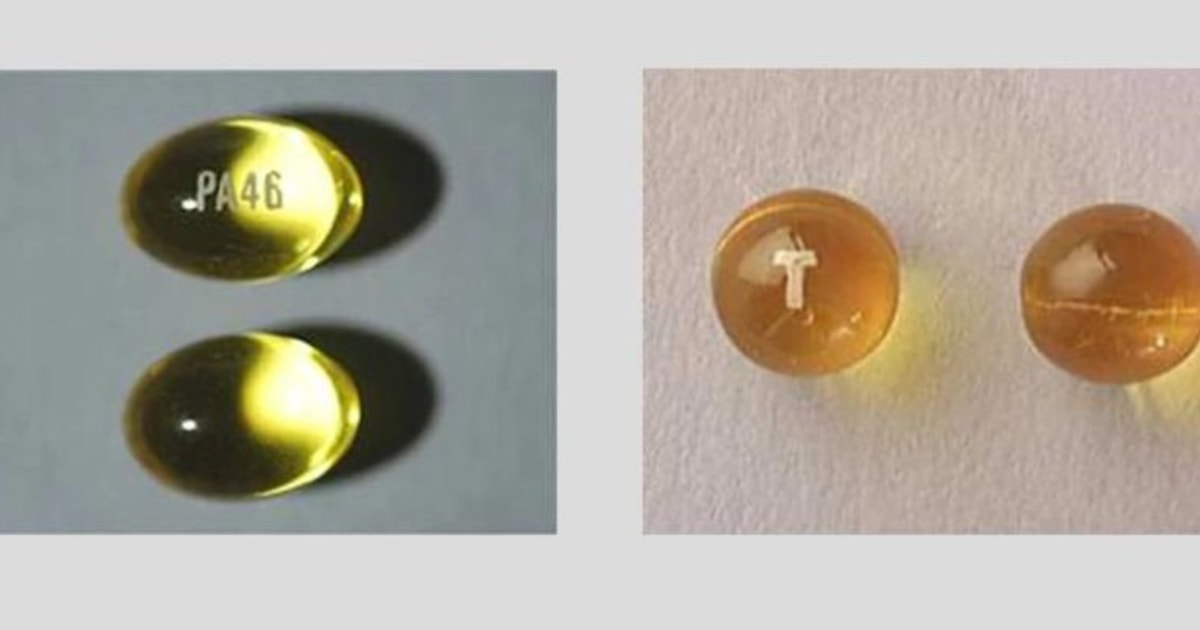By Berkeley Lovelace Jr. -
NBC News
The Food and Drug Administration (FDA) warned Tuesday of an increase in poisoning in children after ingesting a type of prescription cough medicine.
Reports of pediatric benzonatate poisonings grew every year from 2010 to 2018, according to a health agency study. Sold under the brand name Tessalon, benzonatate is prescribed to treat coughs caused by colds or the flu.
It is not authorized for children under 10 years of age.
Benzonatate, sold under the brand name Tessalon, is a prescription medicine approved to relieve cough in patients 10 years of age and older.FDA
The results, published in the journal Pediatrics, are based on more than 4,600 cases reported to poison control centers.
The largest increase, 24%, occurred from 2015 to 2016.
Reports of poisoning included children who were unintentionally exposed to the drug, as well as minors who intentionally abused or misused it.
Most of the cases related to the intentional use of benzonatate were among children 10 years and older, according to the study.
[Online Weight Loss Companies Offer Access to New Drugs, But Do They Provide Good Medical Care?]
The proportion of cases with serious adverse effects was low.
However, accidental or improper use of benzonatate, which comes in gel capsules, can cause serious health problems in children, including seizures, cardiac arrest, and death.
The findings should prompt doctors to be more careful when prescribing these types of drugs, said study author Dr. Ivone Kim, a pediatrician and FDA chief medical officer.
Concerns are renewed for a triple epidemic in the US between autumn and winter
Nov 15, 202201:47
It should also encourage more parents to keep medications out of the reach of children, according to Dr. Nusheen Ameenuddin, a pediatrician at the Mayo Clinic in Rochester, Minnesota.
Cough medicines "should be treated like any other medicine that can have serious side effects," Ameenuddin said, "which means not giving it to children without a specific medical indication."
Also, drug manufacturers may need to re-evaluate the way the drug is manufactured, as it comes in round, liquid-filled capsules that resemble candy, making it attractive to children.
[One person died and 16 became ill from a listeria outbreak linked to sausages and cheeses]
The increase in pediatric poisonings related to benzonatate coincided with an increase in the number of prescriptions for this drug in the same period.
This may be a consequence, according to the study authors, of public health efforts to curb the inappropriate use of cough medicines that contain narcotics, including opioids.
The FDA requires that cough medicines containing these substances carry a label warning to limit their use.
Avoid suffering from diabetes with these basic feeding tips
Nov 15, 202201:39
Benzonatate is the only non-narcotic cough medicine sold by prescription in the United States.
Buddy Creech, a pediatrician at Vanderbilt University Medical Center in Nashville, Tennessee, said coughing is a very "difficult" symptom and many doctors often turn to medication to relieve symptoms.
As non-narcotic drugs become more common in homes, "the likelihood of errors is going to increase," Creech said.
The authors noted that the study has limitations, including that it could not confirm all cases and that some of the reports to poison control centers could be duplicates.
Still, the study reminds doctors to give good advice about when and how to use the drug, Creech said.
[Medicare Fraud Cost Seniors Millions of Dollars in 2021. Here's How to Avoid Scams]
Parents can also keep their children safe by storing medication out of sight, either behind a locked door or on a high shelf that is inaccessible.
They can also talk to their children about the medicines they are taking.
“It's an opportunity to have a conversation with our children to tell them that this is the medicine that I'm taking and to understand what these medicines are like,” Creech said.
The FDA's Kim said adults should properly dispose of unused or expired medications in the home.
It's also crucial that parents watch for symptoms of an overdose, such as restlessness, tremors, seizures or coma, and quickly seek medical attention, he said.

